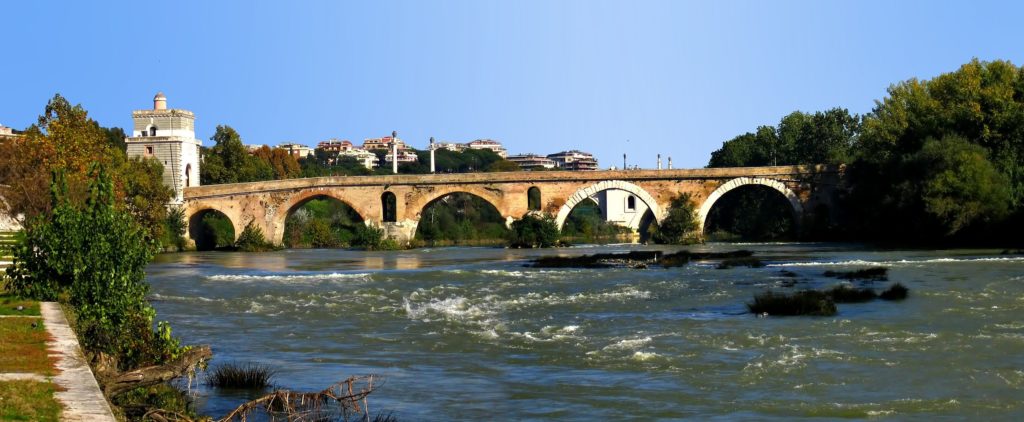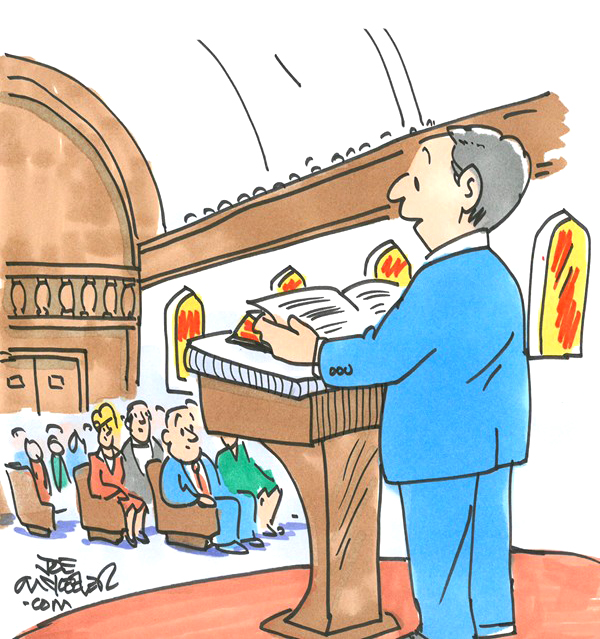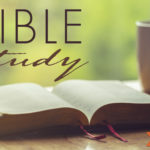
 NASHVILLE (BP) — When Constantine achieved his remarkable victory over Maxentius’ superior military force on Oct. 28, 312 A.D., at the Milvian Bridge, just outside the walls of Rome, something happened that the Church has been dealing with ever since – the past 1,700 years.
NASHVILLE (BP) — When Constantine achieved his remarkable victory over Maxentius’ superior military force on Oct. 28, 312 A.D., at the Milvian Bridge, just outside the walls of Rome, something happened that the Church has been dealing with ever since – the past 1,700 years.
Constantine’s conversion to Christianity and his vision of a “sword in the sky” assuring him of victory over his superior enemy brought the Church inside the castle walls, so to speak, initiating what may be called a political-religious dance that has continued ever since. The Church went from being illegal at times and, at a minimum, disconsonant with the state to an institution approved of or considered largely benign by the state.
Prior to 300 A.D., the Church was outside the castle walls and, as one might say, did right well for three centuries without the approval or support of the government. The Church in general and believers in particular preached the Gospel, planted churches and cared for the needy apart from any government approval or support. Those early believers had no expectation of some of the liberties we take for granted – religious liberty coupled with freedom of speech and assembly. The results were astonishing.
According to Michael Green (“Evangelism in the Early Church”) and Rodney Stark (“The Rise of Christianity”), the Gospel spread exponentially in those early centuries through the means of Gospel conviction and preaching, house churches, personal relationships, warm hospitality, spiritual power, personal sacrifice (martyrdom at times) and sheer grit and spiritual courage. All of this apart from buildings or budgets and often without state protection, approval or permission.
However, after Constantine, the Church received an increasing degree of approval from the state. This led to the dance between church and state that has gone through multiple iterations throughout the centuries – a state church, monarchial religion, the separatist movement, state-sanctioned religion and, in the West, a remarkable version of religious liberty and freedom of conscience.
Sometimes in this dance the Church has led, at other times the state has led. At times the dance has gone well; at other times it has been awkward, even destructive to the Church and/or the state. The effects have been both good and bad. The Church was able to spread its message without prohibitions, often with the approval of the state.
Yet, the downside was that the Church began to measure much of what it did through its relationship with the state, thereby losing some of its independence and courage. In some ways it made the Church soft. It caused some to even equate the Church with the state, especially in America.
In the West, particularly in America, we have had the privilege of living in a place founded upon a Judeo-Christian framework and enjoying a great degree of religious liberty. Yet sadly, these days seem to be coming to an end.
With the complete secularization of Europe and the secularizing process underway in America, the Church is slowly and methodically being kicked outside the castle walls once again. The Church is now persona non grata. We have lost our favored position at the community table. We are increasingly viewed as odd, dangerous and bigoted. We are told it’s permissible to keep our beliefs in the church house and in ‘my house,’ but they have no place in the public square.
Just ask Oral Roberts University after their recent Cinderella run in the 2021 NCAA tournament – a run that should have been celebrated but was instead criticized because of ORU’s strict moral code that would be viewed by most Christians as normal and yes, even biblical. However, some argued that schools with biblical convictions have no place in a secular tournament.
Christians will rightly cry foul. And we will see a few interim victories for religious liberty and biblical morality, but the tide is against us. We are no longer in control of the institutions that make culture – the media, education, big business and technology. We are returning to our pre-Constantine days.
But there is hope. Save for a revival of biblical proportions (for which we can and should pray), the hope we have is that a Church outside the castle walls can be lethal, free, effective, efficient, focused and powerful. When the Church loses its dependence on the state for its freedom to accomplish its mission and when individual believers live with Gospel conviction, the real strength of the Church can be embraced – the Gospel of Jesus Christ lived out in community in the power of the Holy Spirit commensurate with the Word of God.
What do we do in this season of transition and secularization? Stark and Green are instructive: 1) We pray; 2) We evangelize where every church member is involved; 3) We live holy lives that support a holy Gospel; 4) We’re serious about the faith once for all delivered to the saints, consistently and creatively applying Gospel truth for Gospel living; 5) We live with the belief Christ could return at any moment, a belief that is not escapist but acknowledges we will be held to account.
Further, 6) We preach a clear Gospel and embrace a robust biblical theology, leaving the outcomes to God; 7) We suffer willingly for the Gospel if necessary; 8) We build strong communities of faith and family; 9) We engage the culture with a clear Gospel message with grace, guts and grit; 10) We utilize all kinds of methods to evangelize the lost, meet human needs and build the Church – house meetings, personal conversations, hospitality, open-air preaching, marketplace evangelism, financial giving, personal testimony, the wise use of technology and serving in public offices locally and nationally – and this is only a short list; and, 11) We live with absolute joy.
Most important, we don’t wait for permission from the State to do these things. Nor do we wait for the Church to develop a program for everything it does. The Church preaches to, disciples and develops believers; it is up to each believer to apply biblical truth where they live, play and work. Further, Christians are to be law-abiding citizens, but that does not mean the Church needs permission from the state to be the Church.
Yes, we continue to fight for righteousness in the public square and for religious liberty. Personally, I will continue to love my country – her history, heritage and freedoms. I will continue to enjoy the better parts of American culture and will miss them when they’re gone.
However, I love God’s kingdom more. Let us prepare now for a new day outside the castle walls as we rediscover our true strength – the Gospel of Jesus Christ and the power of the Word of God – and live for the day when all the nations will worship our God (Revelation 15:4).
Kevin Shrum is pastor of Inglewood Baptist Church in Nashville. Photo from Wikipedia.




















